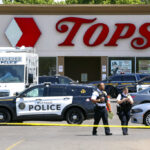Groups offering state-mandated alcohol-awareness training to bartenders and liquor-store workers would have to provide at least three hours of instruction and give a state-approved test under rules proposed by the Maryland Comptroller of the Treasury.
The proposal would standardize requirements for programs offered by nearly 20 vendors and about 250 trainers following complaints that some have shortchanged students on training time. The courses are supposed teach servers about the legal and physical limits of alcohol consumption, mainly to prevent drunken driving.
The proposed rules, which are being aired for public comment through July 24, would be the first uniform regulations governing training required by a 1989 state law aimed at reducing alcohol-related traffic deaths. The comptroller’s office currently certifies programs with varying characteristics and enforces the law based on whether a program delivers on its own promises.
The proposal incorporates suggestions from the Restaurant Association of Maryland, which offers a training program called Maryland’s BEST. The association, with 3,000 members statewide, had sought a minimum of three hours of instruction, delivered either in a classroom or electronically, followed by a compulsory test. The proposed rules include all those elements.
The Maryland State Licensed Beverage Association sponsors a server training program called Maryland TAM, short for Techniques of Alcohol Management, that typically runs four hours. Executive Director Jane Springer said she had qualms about Internet training but that a proposed requirement for face-to-face testing may alleviate concerns about cheating.
“If we’re going to have training, we want it to be legitimate, and it looks like that’s what they’re trying to do here,” she said.
Maryland law requires every establishment that sells alcoholic beverages, including retail stores, to have at least one employee certified by a state-approved alcohol-awareness program. Five counties — Harford, Howard, Kent, Montgomery and Washington — and the city of Annapolis go further by requiring that a certified person be on the premises whenever alcohol is being sold or served.
At least 11 states require such training, according to the Centers for Disease Control and Prevention. A CDC task force has concluded that programs incorporating “well-executed, face-to-face training, accompanied by active management support” can reduce alcohol-impaired driving.
Alcohol-related traffic fatalities in Maryland have declined since the law was passed in 1989. Such deaths peaked at 407 in 1986 and reached a low of 215 in 1999, according to the National Highway Traffic Safety Administration. In 2004, the last report year available, there were 286 alcohol-related traffic deaths in the state, according to NHTSA.
Was this article valuable?
Here are more articles you may enjoy.


 Viewpoint: How P/C Carriers Can Win the Next Decade With Tech + Talent
Viewpoint: How P/C Carriers Can Win the Next Decade With Tech + Talent  BMW Recalls Hundreds of Thousands of Cars Over Fire Risk
BMW Recalls Hundreds of Thousands of Cars Over Fire Risk  Gun Accessory Company to Pay $1.75 Million to Buffalo Supermarket Shooting Victims
Gun Accessory Company to Pay $1.75 Million to Buffalo Supermarket Shooting Victims  Preparing for an AI Native Future
Preparing for an AI Native Future 

